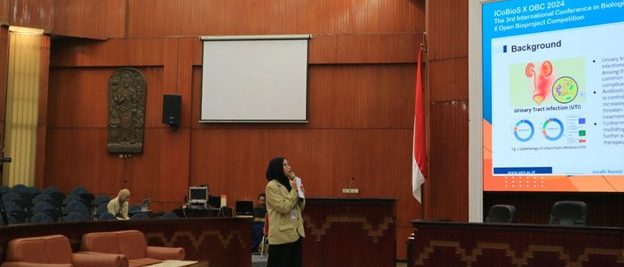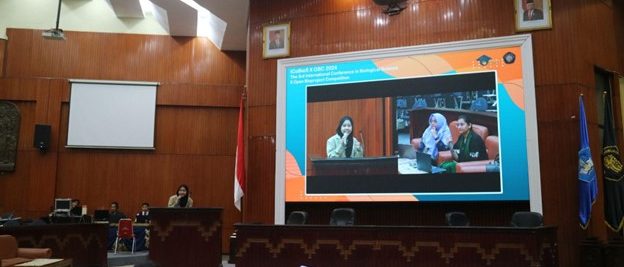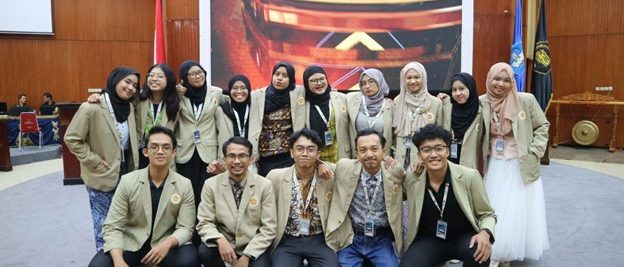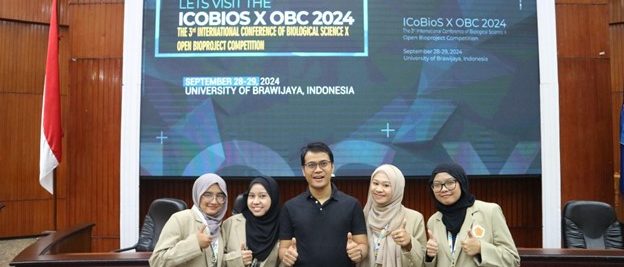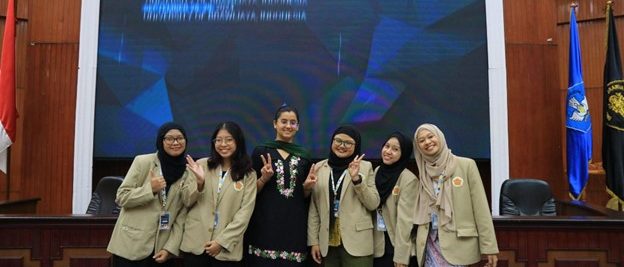Alif Monica Putriningsih and Mutiara Charissa Putri Nugraheni, students of the Faculty of Biology MBKM Team, Universitas Gadjah Mada (UGM), had the opportunity to participate in the ICOBIOS X OBC 2024 international conference held at Brawijaya University, Malang, on September 28-29, 2024. This prestigious event sponsored by Generasi Biologi Indonesia (INBIO-Indonesia) brings together experts from various biological disciplines to share the latest findings and discuss solutions to global challenges. With the theme “Recent Updates in Bioinformatics, Synthetic Biology, and Nanobio Science for a Better Future”, ICOBIOS 2024 presents a wide range of interesting topics on cutting-edge technology and science. From in-depth seminars to interactive workshops, the conference provides a space for participants to collaborate and broaden their horizons on the latest developments in bioinformatics, synthetic biology, and nanobiotechnology.
On this occasion, the MBKM Team from Faculty of Biology UGM presented their research which was mentored by Dr. Wahyu Aristyaning Putri from Faculty of Biology UGM and Dr. Didik Huswo Utomo from INBIO-Indonesia. This research was conducted through the exploration of various active peptides derived from snake venom as new drug candidates to overcome Multidrug Resistant (MDR) bacterial infections, especially in Escherichia coli and Staphylococcus aureus that have resistance to various antibiotics. The main objective of this study was to identify effective active peptides from snake venom as an alternative drug to overcome MDR bacterial infections. An in silico approach was applied to analyze and compare the potential of various active peptides, in order to determine the most potential peptide type. The results showed that the candidate peptides with PDB chains 1F8R_A_5, 1F8R_A_21, and A0A0H3U266_pep_1 are the most potential peptides as new drugs to overcome MDR bacterial infections, namely Escherichia coli and Staphylococcus aureus.
This discovery offers new hope for the medical world, and opens the door to the development of more effective and environmentally friendly treatments. By identifying active peptides derived from snake venom, this study has the potential to generate new drug candidates that are effective against infections caused by Escherichia coli and Staphylococcus aureus. In addition, the results from this research support the achievement of several Sustainable Development Goals (SDGs) targets, including SDG 3: Health and Wellbeing, which focuses on reducing infectious diseases, as well as SDG 17: Partnerships for Purpose, which emphasizes the importance of collaboration between academics, researchers, and practitioners in finding innovative solutions to global health challenges. Through a sustainable and research-based approach, this study has the potential to strengthen public health resilience and improve overall quality of life.

